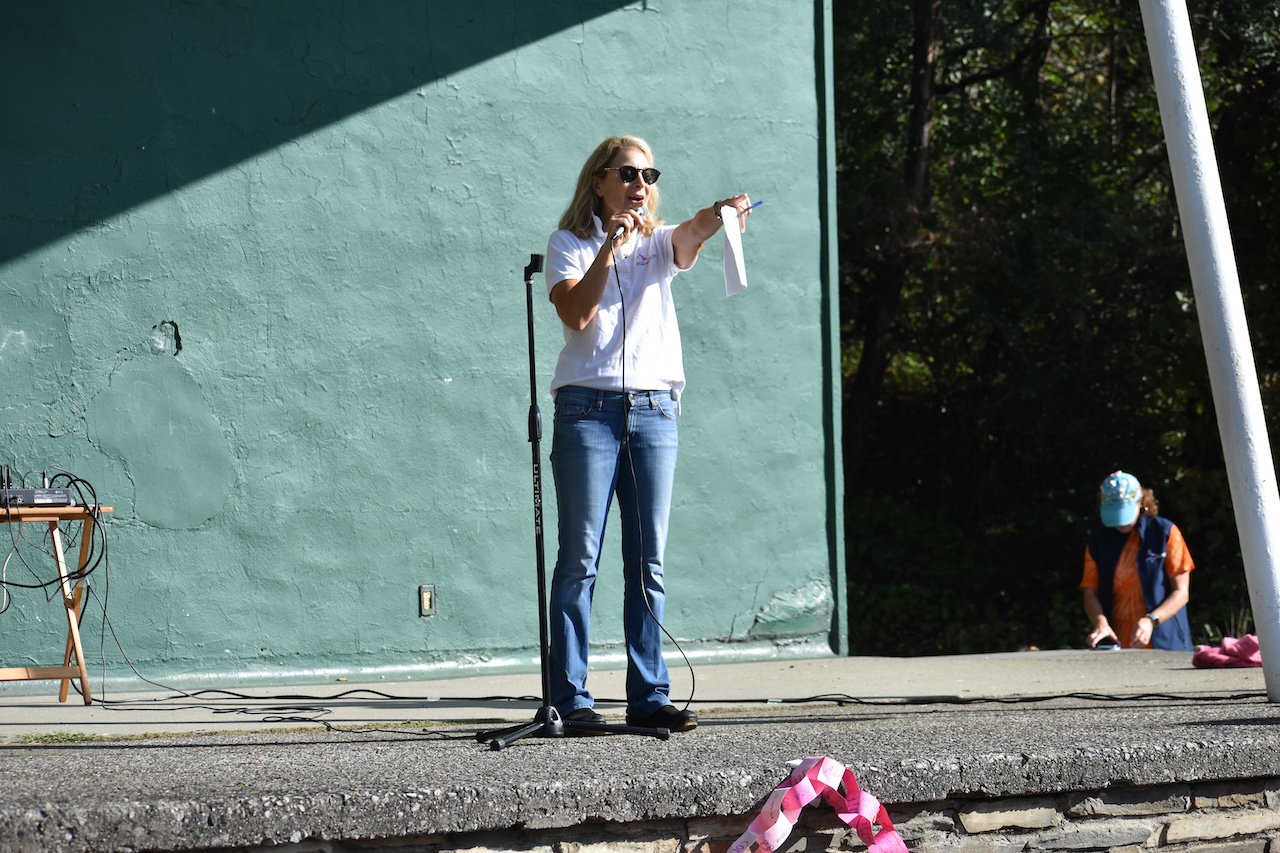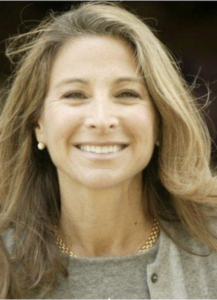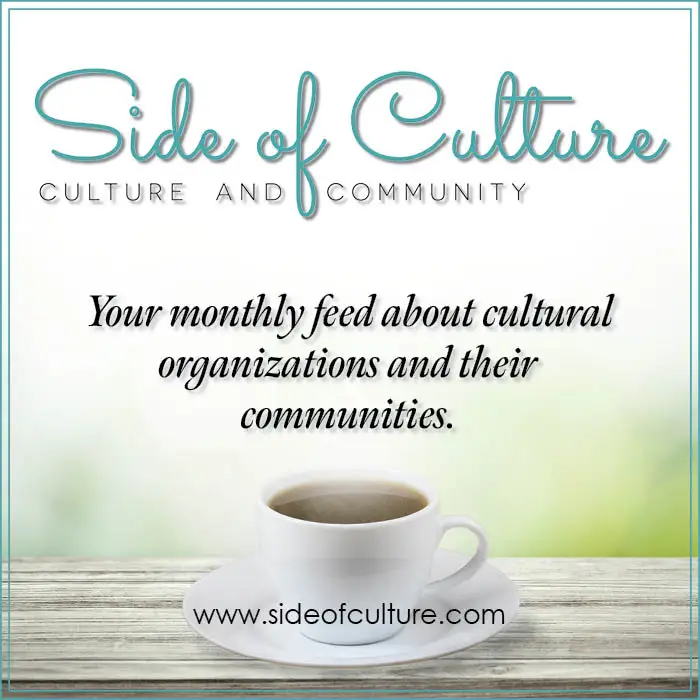Main Street News

Pari Forood Discusses the Miles of Hope Breast Cancer Foundation
Pari Forood has been the executive director of the Miles of Hope Breast Cancer Foundation since its inception in 2004.
Miles of Hope Breast Cancer Foundations funds support services for people affected by breast cancer in the Hudson Valley, as well as providing education and outreach services.
About Pari
Pari received her Bachelor of Arts from Vassar College and her Master’s in Public Administration from Marist College. After graduating from Vassar, she served as the press secretary to Congressman Hamilton Fish Jr. in Washington, D.C.
Pari is also an author. She wrote The Gates of Light, a novel that tackles the issue of immigration as it relates to her work and her family’s story and is based on her time working on Capitol Hill, and The Goodwill Mission, a novel about three American teenagers that unwillingly become a part of a plan to help Poland achieve democracy.
Most recently, Pari was the recipient of the Healthcare Volunteer of the Year Award for Connecticut by the Hartford Business Journal. She has served on the board of Sharon Hospital for over five years and chaired the Quality and Performance Improvement Committee.
“It’s tremendously rewarding. I didn’t expect it at all, and I’m so grateful,” Pari said. “The employees at Sharon Hospital work so hard doing their job with efficiency and grace – it’s so inspirational. They’re hard-working, dedicated healthcare professionals, and I’m grateful to work with them.”
The Start of Miles of Hope
Miles of Hope was started by founders Cathy Benecke Varunok and Dana Effron as a donor advised fund and was registered as a 501(c)3 nonprofit organization in 2004.
“I knew I wanted to be a part of Miles of Hope,” Pari said. “Those two are the founders and I signed on as a facilitator.”
Cathy, Dana, and Pari immediately got to work raising money.
They also got to work ironing out four pillar programs; financial assistance, peer-to-peer counseling, college scholarships, and complementary medicine.
The financial assistance pillar provides monetary support for any crisis that is not covered by health insurance for those undergoing breast cancer treatment.
“This is the one we spend the most money on. If you’re in treatment and you need help paying your bills, we’re going to step in and help you pay them,” Pari said. “Insurance doesn’t pay for things like transportation to and from treatments, groceries, bills, and so much more. This program was really needed.”
The peer-to-peer counseling connects recently diagnosed breast cancer patients with trained breast cancer survivors to provide emotional support services.
“Dana would have people calling her in the middle of the night saying ‘I just got diagnosed with breast cancer and I don’t know what to do.’ We decided to set up a peer-to-peer hotline, which is staffed by trained breast cancer survivors,” she said. “They’re not medically trained, but they can provide emotional support and answer questions like ‘When am I going to lose my hair?’ or ‘Where are there support groups near me?’”
The college scholarships are provided to college-bound high school seniors or eligible college students whose lives have been affected by breast cancer.
Lastly, the complementary medicine pillar provides therapeutic treatment that helps to enhance a patient’s recovery.
“Complementary medicine can be things like dance or yoga, anything that will enhance recovery by reducing stress levels,” Pari explained. “It’s all about taking some of that stress off so that recovery can happen more easily and more efficiently.”
Challenges and Partnerships
The biggest challenge when Miles of Hope first started was figuring out the most efficient way to get funding. Setting up satellite offices throughout the Hudson Valley would have been very expensive and not sustainable, so Miles of Hope decided to partner with local social service agencies.
They’re partnered with Community Action Partnership of Dutchess County for Dutchess and Columbia counties; Cornerstone Family Healthcare for Greene, Orange, Rockland, Sullivan, and Ulster counties; Putnam Community Action Partnership for Putnam County; and Cancer Support Team for Westchester County.
“For example, we give a block grant at the beginning of the year to these seven social service agencies. The benefit of this is that we’re connecting survivors and people in need with these agencies that can help them get funds through other methods as well,” Pari explained. “Oftentimes, if somebody can’t go into the office, they can just make a phone call. We don’t ask for a lot. If you’re in treatment for breast cancer and you live in the Hudson Valley, that’s enough for us to give you the funds.”
Growth and Change
After being involved with Miles of Hope for nearly 20 years, Pari has seen the organization grow and change significantly. “It’s lovely to be known. It means that people will come to you when they need help.”
Miles of Hope has a variety of breast centers, oncologists, radiologists, and other medical professionals that they work and network with. Pari said that one of the other common ways that people become aware of their organization is through word of mouth.
“We want all of that buzz out there. Social media has also been wonderful to help us get the word out and quite honestly, it helps me fundraise.”
Pari’s favorite part of her job is her ability to help people.
“It’s such a wonderful feeling,” she said. “I’ll be in the grocery store and someone will come up to me and say, ‘Are you Pari? You helped my mother, my sister, my son, etc.’ and they’ll hug me. Complete and total strangers.”
Pari said that working for a nonprofit reminds her a lot of her time in government service. “Up to 80% of what a Congressional office does is help people figure out how to deal with whatever federal program or issue they’re having trouble with,” she explained.
She’s also a big advocate for women’s health and frequently hosts presentations and talks about how women can reduce their cancer risk.
“I tell women that they’re not sitting ducks and that they can reduce their cancer risk by as much as 20% by living a healthier lifestyle,” she said. “Informing the public, especially women, about how to avoid cancer is a big part of my job and something that is incredibly rewarding for me.”
Naturally, all jobs come with challenges. For Pari, the biggest challenge is the same as every non-profit organization – raising money.
Each year, Miles of hope hosts two big events; the first, a spring brunch in May, and the second, a community walk in October.
“Those two bring in the bulk of what we raise,” Pari explained.
Another unique challenge was born out of the pandemic. Because of lockdown and then the ensuing anxiety of entering a doctor’s office or hospital without being sure it was safe or not, many women were not going for their yearly mammograms.
“We have two breast surgeons on our board and they were telling us that many women stopped coming in for their mammograms during the pandemic and did not resume regular checkups afterwards,” she said. “Because of this, they were seeing a lot more stage 3 and 4 breast cancer diagnoses.”
According to the Susan G. Komen Foundation, the survival rate for stage 1 breast cancer is 98-100%; for stage 2, the survival rate is 90-99%; at stage 3, the survival rate drops significantly, coming in at 66-98%.
After learning about this, Miles of Hope launched a campaign to encourage people to get their yearly mammogram.
“We started this campaign on radio, digital, and social media and it’s just finishing up now,” she said. “The basis of the campaign was to assure everyone that it is safe and very important to have a yearly mammogram. Early detection is key. If you catch cancer in the early stages (1 and 2), treatment and recovery are much less problematic than if it is caught in the later stages (3 and 4). It was really important that we focused on that and drove that message across to everyone.”
To learn more about Miles of Hope, visit their website here. To learn more about Pari Forood, visit her website here.


